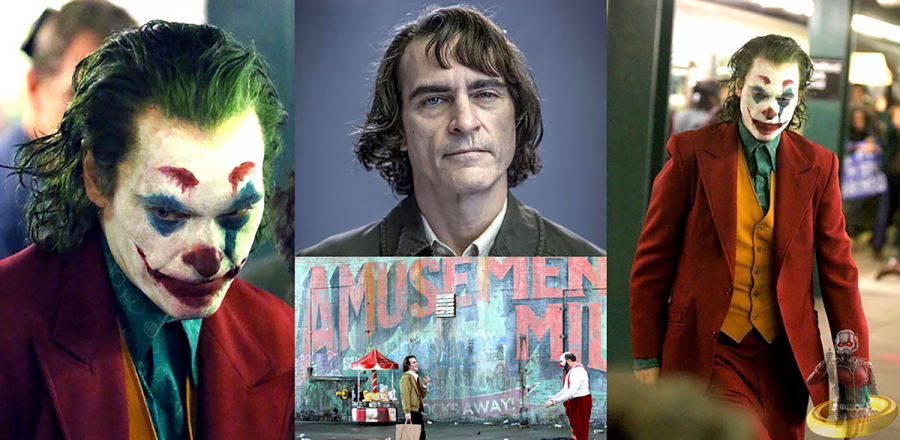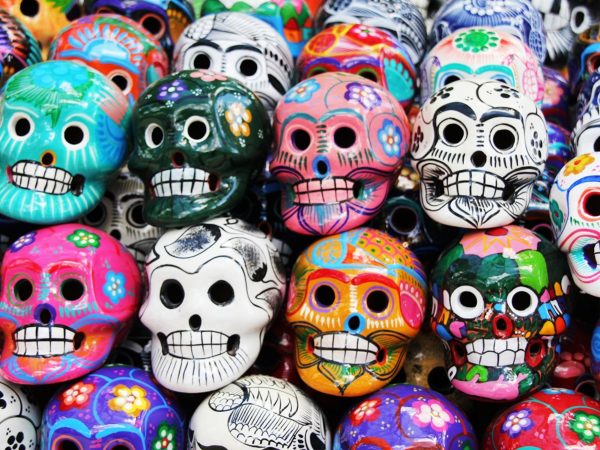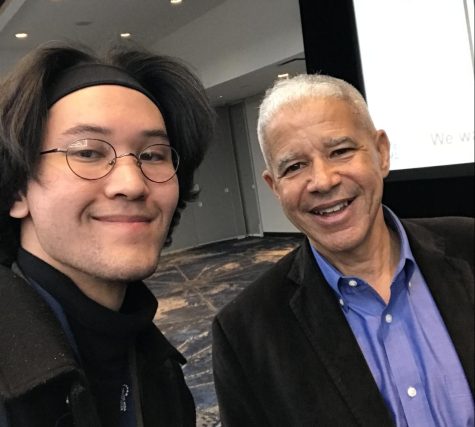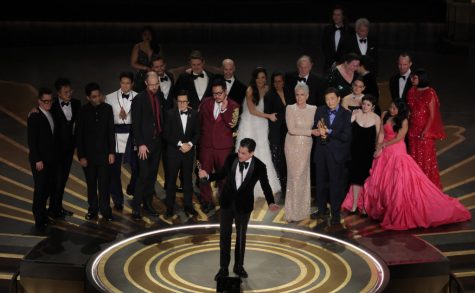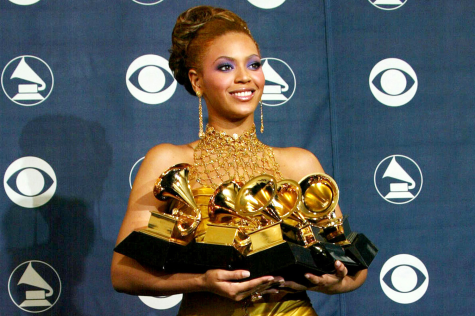Joker: a film protaginist or a martyr?
October 10, 2019
The forever infamous comic book villain The Joker has been called many things. Clown Prince of Crime, Puddin, Mr. J, Criminal, Madman…what about Martyr? The Joker is known for his unpredictability and addiction to violence, and of course, his maddening laugh.
Fans look up to him as their favorite villian or comic book character and the crazier he becomes the more fans eat it up. This has left people wondering if the upcoming film starring the titular character will lead to an act of violence or if people will begin to sympathize with a villian.
Theaters are taking precautions to avoid another attack including prohibiting people from wearing masks or even dressing up as the character. However, the question remains: what is the true cause of this type of violence?
The film gives the Joker an original backstory that other superhero films have left out. It tells the story of a mentally ill man who has been picked apart and cast out by society until he snaps and lashes back. This leads him to commit atrocious acts of violence and slowly adapt to his persona, The Joker. Fans have raised concern that this film portrays the character as a tragic sympathetic villain.
Warner Brothers have released a statement to SYFY Wire, an entertainment website revolving around film and pop culture, regarding this film’s controversy.
“Make no mistake: neither the fictional character Joker, nor the film, is an endorsement of real-world violence of any kind. It is not the intention of the film, the filmmakers or the studio to hold this character up as a hero,” the studio said.
Given the film’s graphic content, it has received an R rating and has stirred up much controversy. Viewers have accused Warner Bros. and director Todd Phillips of glorifying violence and garnering sympathy for the bad guy. After viewing the film one critique of Telegraph magazine named Robbie Collin tweeted: “Here is my opinion of Joker: I think it’s a very good film and I’m worried someone’s going to get killed.”
Some fans worry that this film will trigger a new attack or even multiple attacks due to the mass shooting that occurred in the Aurora Colorado Century 16 movie theater during a 2012 screening of “Batman: The Dark Knight Rises.”
Survivors of the attack have written a letter to Warner Brothers asking them not to cancel the movie but to stop donating campaign funds to politicians who work and endorse the National Rifle Association. The Colorado theater is refusing to screen the film out of respect and for other people’s safety. When asked about the film’s release, the theater’s manager declined to comment.
The real question is do violent films or games influence violent actions primarily among young people? Is the violence seen on screen needed to emulate an original attack or is this another excuse? This topic has been in debate for many years and many psychologists have gained inconclusive results.
“It is my understanding that the research is inconclusive about the connection between violence in films and violent actions in the world,” says Sara Barnard, a counselor at California State University, East Bay’s Student Health and Counseling Services. “There has been some tendency to use pseudoscience claims to link video game usage and violent film content to acts of violence, but it is my understanding this is not the strongest predictor of violent actions.”
Other studies have been conducted by psychologists and other organizations who have tried to get to the bottom of this question. In 2012, the NRA blamed media for these attacks and specifically cited films such as “American Psycho” and “Natural Born Killers” as films that enable people to act out their violent tendencies. The Columbine school shooting has also come into question due to the fact the two perpetrators, Eric Haris and Dylan Klebold, were fans of the graphic video game Doom.
Some psychologists and other researchers still continue to emphasize that media is not all to blame. Betsy Bozdech, a researcher for Common Sense Media, an organization that “provides education and advocacy to families to promote safe technology and media for children believes it is not what people view that causes this type of behavior, but the amount of violence made accessible to people,”
“It has been shown that repeated exposure to violent media can be desensitizing, and many kids are exposed to thousands of violent images and ideas through the media. All the more reason why it’s important to teach our kids to be critical media consumers,” Bozdech said in an interview.
It’s natural for people to create their own reasonings for things they do not understand, Bozdech continues.
“People want to find something to point towards when people act in violent and harmful ways towards others. It is natural that we, as humans, want to find a simple explanation, to be able to point at one thing and say “this is the reason,” Bozdech said.“I think people blame violent movies because they want to find something to explain difficult behavior and, perhaps, to find a solution to limit further violence in the future.”
Even with all the controversy about violence, the Joker film itself has been getting rave reviews and even had a standing ovation, which lasted eight minutes at a film premiere in Spain. Many critics have been calling Joaquin Phoenix’s portrayal Oscar-worthy.
In the past studies have been conducted to find the correlation of violent actions in film and if they lead to violent attacks, many results have been divided or inconclusive. This still leaves the debate if the film is the primary cause of an attack.
It almost seems like the movie itself is becoming lost in all the controversy, backlash, and fear that it may not be as appreciated for what it is. Another attack would be devastating however that should not dictate people’s reactions or their decision to see it.
This film was made to tell the story of an iconic character, from his perspective. The unintentional mass hysteria it has caused should not be able to affect what the film set out to be. A piece of art used to convey another person’s story. In words of the Joker “Why So Serious?”




